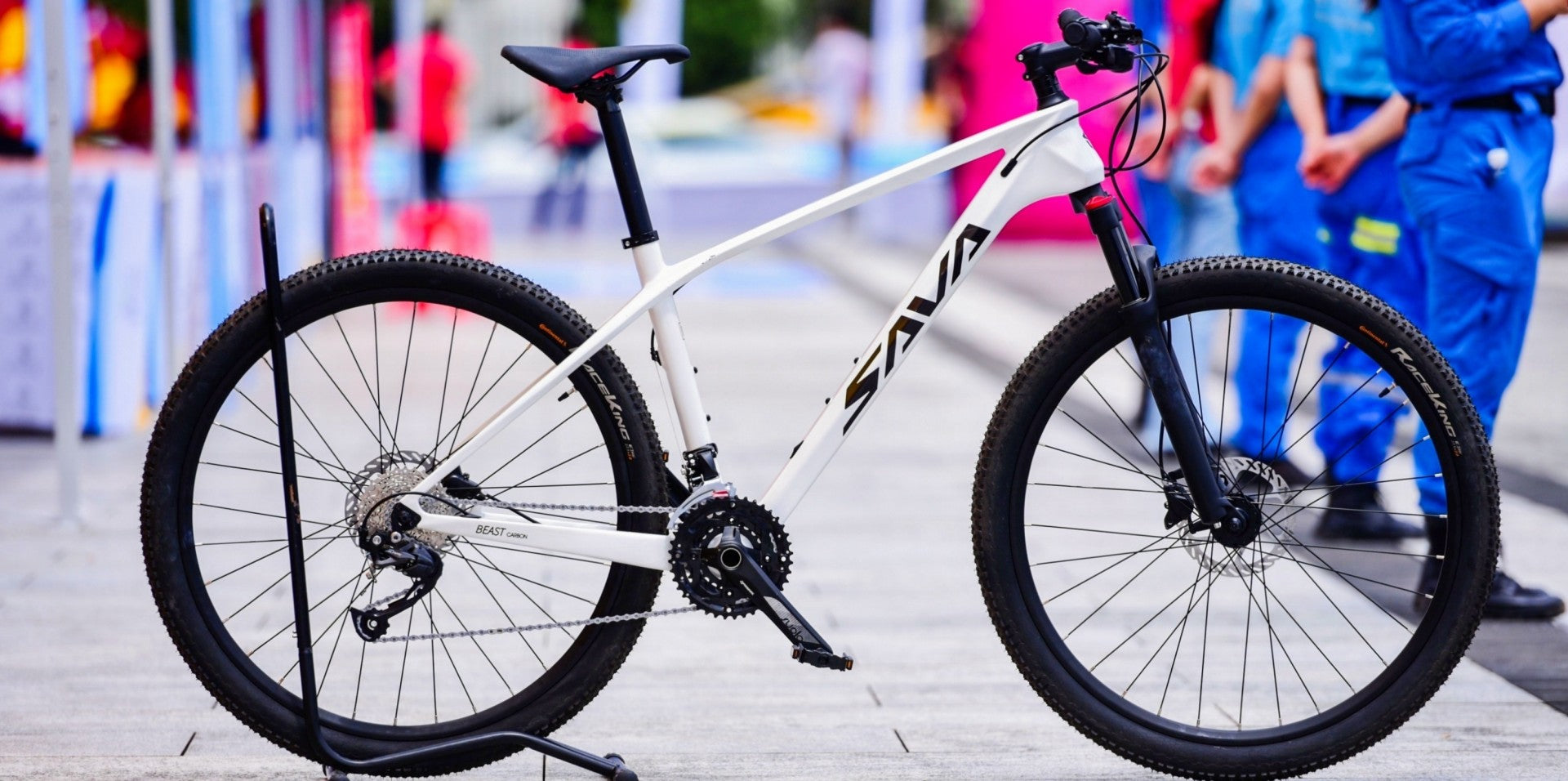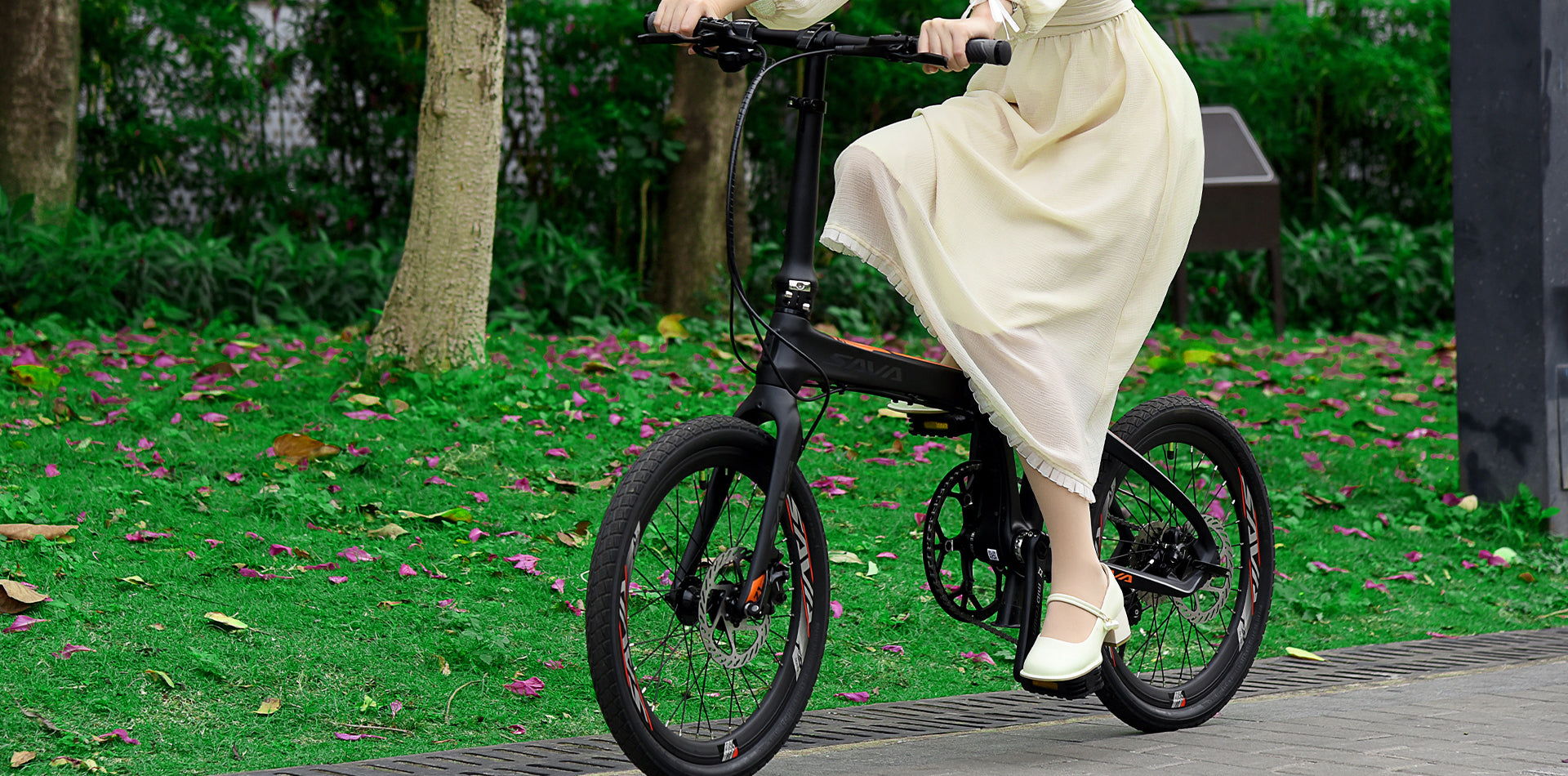7 Benefits Of Winter Cycling

Winter is often seen as a time to retreat indoors, but for cyclists, it's an opportunity to enhance their training and enjoy unique benefits. Here are some compelling reasons to embrace winter cycling:
1. Builds Mental Toughness
Cycling in cold weather requires a strong mindset. Overcoming the challenges of winter conditions can significantly boost your mental resilience, making you a more determined and focused athlete.
2. Improves Physical Endurance
Riding in colder temperatures can enhance your cardiovascular system. Your body works harder to maintain warmth, which can improve your overall endurance and stamina.
3. Burns More Calories
Cold weather cycling can increase your calorie burn. Your body expends more energy to stay warm, which can help with weight management and overall fitness.
4. Enhances Bike Handling Skills
Winter conditions often mean dealing with wet, icy, or snowy roads. Training in these conditions can improve your bike handling skills, making you a more confident and capable cyclist.
5. Boosts Immune System
Regular exercise, including winter cycling, can strengthen your immune system. Staying active helps your body fend off winter illnesses and keeps you healthier overall.
6. Enjoys Scenic Beauty
Winter landscapes offer a unique and serene beauty. Cycling through snow-covered trails or frosty mornings can be a refreshing and invigorating experience, providing a new perspective on familiar routes.
7. Maintains Consistency
Staying consistent with your training throughout the winter ensures you don't lose the progress you've made during the warmer months. It sets a strong foundation for the upcoming cycling season.
Tips for Winter Cycling:
• Dress in Layers: Wear moisture-wicking base layers, insulating mid-layers, and a windproof outer layer.
• Stay Visible: Use bright clothing and lights to ensure you're seen by others.
• Hydrate: Don't forget to drink water, even if you don't feel as thirsty in the cold.
• Check Your Bike: Ensure your bike is winter-ready with appropriate tires and regular maintenance.
Tips for Winter Cycling:
• Dress in Layers: Wear moisture-wicking base layers, insulating mid-layers, and a windproof outer layer.
• Stay Visible: Use bright clothing and lights to ensure you're seen by others.
• Hydrate: Don't forget to drink water, even if you don't feel as thirsty in the cold.
• Check Your Bike: Ensure your bike is winter-ready with appropriate tires and regular maintenance.

Embrace the winter chill and keep pedaling. The benefits of winter cycling training are well worth the effort, and you'll emerge stronger and more resilient when spring arrives.
1. What types of SAVA bikes are suitable for winter riding?
For winter riding, SAVA offers several models that are well suited to cold and potentially slippery conditions:
• SAVA mountain bikes: These bikes are designed for rough terrain and can handle snow and ice better than road bikes.
• SAVA gravel bikes: These bikes are versatile and can be used on a variety of surfaces, including snowy and icy roads.
• SAVA gravel bikes: These bikes are versatile and can be used on a variety of surfaces, including snowy and icy roads.
2. What size tires are recommended for winter riding?
For winter riding, wider tires are generally recommended because they provide better grip and stability. Here are some suggestions:
• Mountain bikes: Tires with a width of 2.2 to 2.5 inches are ideal for snowy and icy conditions
• Gravel bikes: Tires with a width of 35 to 45 mm (1.4 to 1.8 inches) provide a good balance of grip and rolling resistance, and SAVA gravel bikes are compatible with 45C tires
• Mountain bikes: Tires with a width of 2.2 to 2.5 inches are ideal for snowy and icy conditions
• Gravel bikes: Tires with a width of 35 to 45 mm (1.4 to 1.8 inches) provide a good balance of grip and rolling resistance, and SAVA gravel bikes are compatible with 45C tires
3. What are the benefits of winter riding?
There are several benefits to winter cycling:
• Improved endurance: Cycling in cold weather can strengthen your cardiovascular system and overall endurance.
• Mental toughness: Overcoming the challenges of winter conditions can build your mental toughness.
• Calorie burn: Your body burns more calories to stay warm, which can help control your weight.
• Scenic beauty: Winter landscapes offer a unique and peaceful riding experience.
• Improved endurance: Cycling in cold weather can strengthen your cardiovascular system and overall endurance.
• Mental toughness: Overcoming the challenges of winter conditions can build your mental toughness.
• Calorie burn: Your body burns more calories to stay warm, which can help control your weight.
• Scenic beauty: Winter landscapes offer a unique and peaceful riding experience.
4. How should I dress for winter cycling?
Layering is key to staying warm and comfortable:
• Base layer: Moisture-wicking fabrics to prevent sweat from reaching the skin.
• Mid layer: Insulating layer to retain body heat.
• Outer layer: Windproof and waterproof jacket to protect against the elements.
• Accessories: Warm gloves, warm socks, and a hat or balaclava to protect your extremities.
• Base layer: Moisture-wicking fabrics to prevent sweat from reaching the skin.
• Mid layer: Insulating layer to retain body heat.
• Outer layer: Windproof and waterproof jacket to protect against the elements.
• Accessories: Warm gloves, warm socks, and a hat or balaclava to protect your extremities.
5. How to care for your bike in winter?
Winter conditions can be harsh on bikes, so regular maintenance is essential:
• Clean your bike: After every ride, remove salt, mud, or snow to prevent corrosion.
• Lubricate the chain: Use a wet lube to keep the chain running smoothly.
• Check tire pressure: Lower tire pressure can improve traction on snow and ice.
• Clean your bike: After every ride, remove salt, mud, or snow to prevent corrosion.
• Lubricate the chain: Use a wet lube to keep the chain running smoothly.
• Check tire pressure: Lower tire pressure can improve traction on snow and ice.









Zanechat komentář